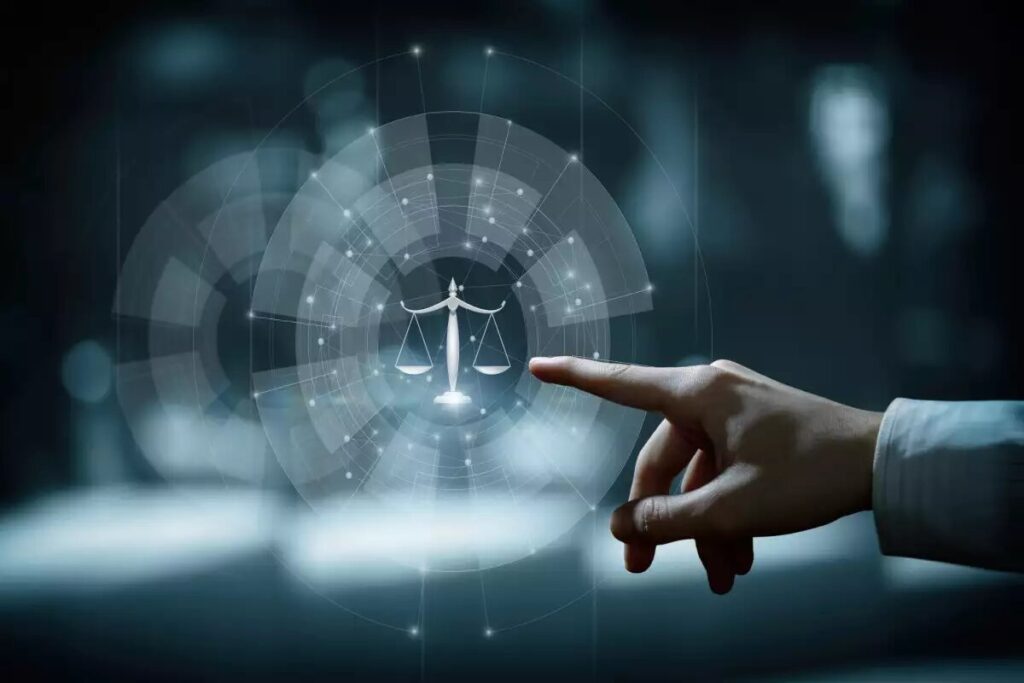In today’s fast-evolving digital landscape, blockchain technology is transforming industries, and the legal sector is no exception. The introduction of blockchain video contracts marks a new era in how agreements are created, stored, and executed. Not only does this approach address the security needs of traditional contracts, but it also emphasizes transparency, authenticity, and efficiency. Let’s dive into why blockchain video contracts could be the key to unlocking unprecedented transparency in legal agreements and how this innovation is setting a new standard for digital contract management.
The Rise of Blockchain in the Legal Sector
Blockchain’s integration into the legal sector isn’t new, but it’s becoming more sophisticated with innovations like smart contracts and now, video contracts. Contracts on blockchain allow parties to maintain secure, immutable agreements that can be traced and verified, addressing some of the most pressing concerns in contract law—such as security and authenticity.

Video contracts add another layer of trust by providing visual documentation of the agreement process, making it nearly impossible for parties to claim misunderstandings or misrepresentations. This combination of blockchain technology and video documentation is a game-changer for modern legal solutions.
The Security and Immutability of Blockchain Video Contracts
One of the most compelling benefits of using blockchain for video contracts is the security and immutability it offers. Traditional contracts, even when digitized, can be tampered with, forged, or lost. Blockchain, however, is known for its secure and immutable nature, meaning that once a contract is uploaded, it cannot be altered or deleted without all parties’ knowledge.
Immutability in contracts is crucial, especially for long-term agreements where details must remain unchanged over time. By recording video contracts on the blockchain, parties gain an added layer of protection against potential disputes or fraudulent alterations. The result is an agreement that’s both secure and unchangeable, offering peace of mind to all parties involved.
Enhancing Transparency with Blockchain Video Contracts
Transparency in contracts has always been a challenge. Traditional paper contracts, often managed manually, are susceptible to errors and inconsistencies. However, blockchain technology is fundamentally designed to promote transparency. Each transaction, or in this case, each contract, is recorded on a decentralized ledger that all parties can view and verify.
Video contracts recorded on blockchain take this transparency even further. Imagine being able to access not only the text of an agreement but also a video record of each party’s confirmation and consent. This level of transparency ensures that there is no ambiguity, as every detail of the agreement is preserved on the blockchain. It’s a groundbreaking step for building trust between parties, as they have undeniable proof of each aspect of the agreement.
Improving Efficiency and Reducing Costs in Contract Execution
Contract execution on blockchain is a more efficient process compared to traditional methods. With smart contracts, many aspects of the contract can be automated, reducing administrative overhead and minimizing human error. For instance, payments and other terms specified in the contract can be automatically triggered once conditions are met.
Video contracts are equally useful here, as they provide a clear, undisputed record of each party’s obligations and the agreed-upon terms. This streamlined approach can significantly reduce legal costs, as there’s less room for disputes and the need for lengthy contract verification. Additionally, personalized video contracts can be tailored to the specific needs of each party, adding a layer of customization without sacrificing efficiency or transparency.
Increasing Trust Through Authenticity and Verification
Authenticity is a major factor in any contract. Traditional contracts rely heavily on trust, and any disputes typically require costly and time-consuming legal intervention. With blockchain video contracts, authenticity is baked into the system. Blockchain technology ensures that each contract is authentic by creating a secure, verifiable record of the agreement process.
For example, digital contract platforms can use blockchain to verify that both parties have signed and agreed to the terms on video, adding another layer of trust. This visual proof combined with blockchain’s inherent security makes it incredibly difficult for any party to deny their commitment to the contract. By reinforcing the authenticity of contracts, blockchain video contracts effectively remove much of the doubt that plagues traditional agreements.
Pioneering Innovation in Contracts with Video and Blockchain
Blockchain technology is proving to be a driving force for innovation in contracts, paving the way for more transparent and accountable legal agreements. By integrating video into blockchain contracts, the legal industry is taking a significant step toward modernizing its practices. Not only does this approach provide greater transparency, but it also aligns with the growing demand for more digital and accessible solutions in the legal sector.
The emergence of personalized video contracts demonstrates how adaptable this technology can be. Law firms, corporations, and individuals can all benefit from a contract solution that combines the best of both worlds: the security of blockchain and the clarity of video documentation. This innovation represents a shift from traditional paperwork to a more interactive, verifiable approach to legal agreements.

The Future of Digital Contract Management
As blockchain technology continues to evolve, the possibilities for digital contract management are expanding. Blockchain’s secure infrastructure and video’s power to communicate intent and consent offer a promising future for contract management. Legal professionals, businesses, and individuals alike will likely see an increase in the adoption of blockchain video contracts as they seek reliable, transparent, and efficient solutions for their agreements.
Incorporating these modern legal solutions will not only benefit current users but will also inspire further advancements in digital contract platforms. The combination of blockchain’s transparency and video’s authenticity sets a new precedent for how contracts should be managed, executed, and secured in the digital age.
Conclusion
Blockchain video contracts are more than just a trend—they’re the future of contract law. By leveraging the security, immutability, and transparency of blockchain, along with the clarity provided by video, these contracts address the primary pain points in traditional contract management. This innovative approach ensures that contracts are not only authentic and transparent but also more efficient and adaptable to modern legal needs.
With blockchain video contracts, the legal sector is on the cusp of a transformation that prioritizes trust, transparency, and technology. For individuals and businesses looking to secure their agreements and reduce the risks associated with traditional contracts, blockchain video contracts may very well be the key to unlocking a new era of clarity and accountability in legal agreements.



